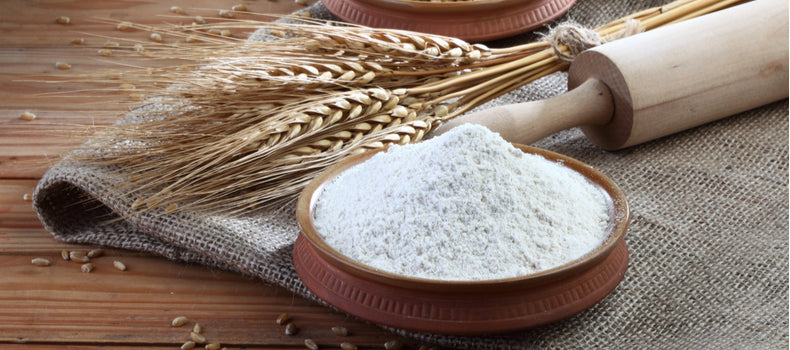Stomach aches are an unpleasant feeling many of us have experienced, and can be caused by anything from indigestion to food poisoning.
However, some stomach pain can be as a result of a food intolerance. If you regularly experience stomach pain during or after eating, it may be worth considering that you have an intolerance to a certain type of food.
Types of stomach pain
Stomach pain can be categorised in the following three ways:
- Progressive pain – when the pain worsens over time
- Acute pain – when the pain lasts a period of hours or days
- Chronic pain – long term pain which may come and go
Each can be accompanied by other symptoms, or experienced on their own.
What are common causes of stomach pain?
There are a number of reasons why you may be experiencing stomach or abdominal pain:
Common causes include:
- Indigestion
- Virus
- Gas
- Pulled muscle
- Food poisoning
- Food intolerance
Some rare causes include:
- Blockage or obstruction
- Some types of cancer
- Abdominal aortic aneurysm
It’s also possible to confuse other abdominal pain, such as those in the bowel, with stomach pains, such as constipation, IBS (irritable bowel syndrome), UTI (urinary tract infection), and Crohn’s disease.
How to ease stomach pain
There are a number of ways to ease stomach pain, which will have varying degrees of effectiveness:
Over the counter medication and painkillers
Painkillers such as paracetamol, ibuprofen and aspirin can help relieve stomach pain.
Other over-the-counter medicine can also help depending on the cause of your stomach pain:
- Heartburn – antacids or acid reducer
- Gas – Simeticone or another type of antiflatulent
- Constipation – stool softener or laxative
- IBS or cramps – Buscopan or other IBS medicines
Milk
Believe it or not, certain types of stomach pain can be helped by drinking milk.
If you’re experiencing symptoms similar to heartburn, milk can help by neutralising the stomach acids, which is what causes the pain associated with heartburn. Of course, antacids would be more effective, but milk can work as a backup if you find yourself caught short.
Speciality teas
A number of specialty teas can help to settle upset stomachs and the pain that goes with it. A number of different teas are known to help alleviate stomach pain:
- Ginger tea
- Peppermint tea
- Chamomile tea
- Green tea
- Licorice tea
- Holy basil tea
- Fennel tea
- Black tea
Apply heat
Using a hot water bottle or heated blanket can be a quick way to ease stomach pain. It may not remove the pain completely or for good, but it will be a warming distraction and help relax your muscles.
A hot bath with epsom salts can have similar effects, and releases serotonin which encourages relaxation.
How to help prevent stomach pain
There are a number of ways we can help prevent stomach aches:
Don’t eat spicy foods
lAs delicious as some spicy foods may be, they’re a frequent cause of stomach pain. If you associate spicy foods with stomach ache, it may be time to cut down on the spice and start choosing things more on the milder side.
Eat slow and steady
The faster you eat, the more likely you are to inflict yourself with a stomach ache, because you increase the chances of overeating before your stomach can tell your brain you’re full. Take it slow and listen to your body by stopping eating once you feel full.
Eat more fibre
Eating fibre is a great way to encourage bowel movements, and a bowel that has frequent movements is less likely to suffer the discomforts that come with constipation and gas.
Exercise more
Keeping active can help prevent stomach pain by reducing the risk of constipation. The less we move, the more likely we are to slow down our natural bodily functions.
Be wary of gas-producing food and drink
There are a number of foods and drinks that can cause gas and bloating, which leads to stomach pain. These include:
- Beans
- Beer
- Broccoli
- Cabbage
- Cauliflower
- Fizzy drinks
- Peas
- Lentils
- Mushrooms
- Onion
Don’t lie down too soon after dinner
It can be tempting to head to bed after dinner, particularly if you’ve eaten late. However, lying down soon after a meal can result in stomach acids rising into the oesophagus, which can be painful and leave you with a nasty, bitter taste in your mouth.
Should you see a doctor about your stomach pain?
If your stomach pain is severe and either occurs consistently and is accompanied by other symptoms, consider speaking to your doctor. These other symptoms can include:
- Fever
- Vomiting
- Dehydration
- Constipation
- Pain when urinating
- Tender stomach
How can testing help you identify issues?
If your stomach pain happens frequently either during or after you’ve eaten, it may be that you have an intolerance to something you regularly eat. It can be difficult to pinpoint exactly what it may be that you have an intolerance to, which is why a food sensitivity test can help.
The results of a test will allow you to identify which foods – if any – you may have an intolerance to. That means you’re able to plan your meals to exclude that food and prevent unnecessary stomach pain.
Order a food intolerance test
Sensitivity tests can be taken at home and are quick and easy to do. Browse our tests to discover what might be causing your stomach pains.



